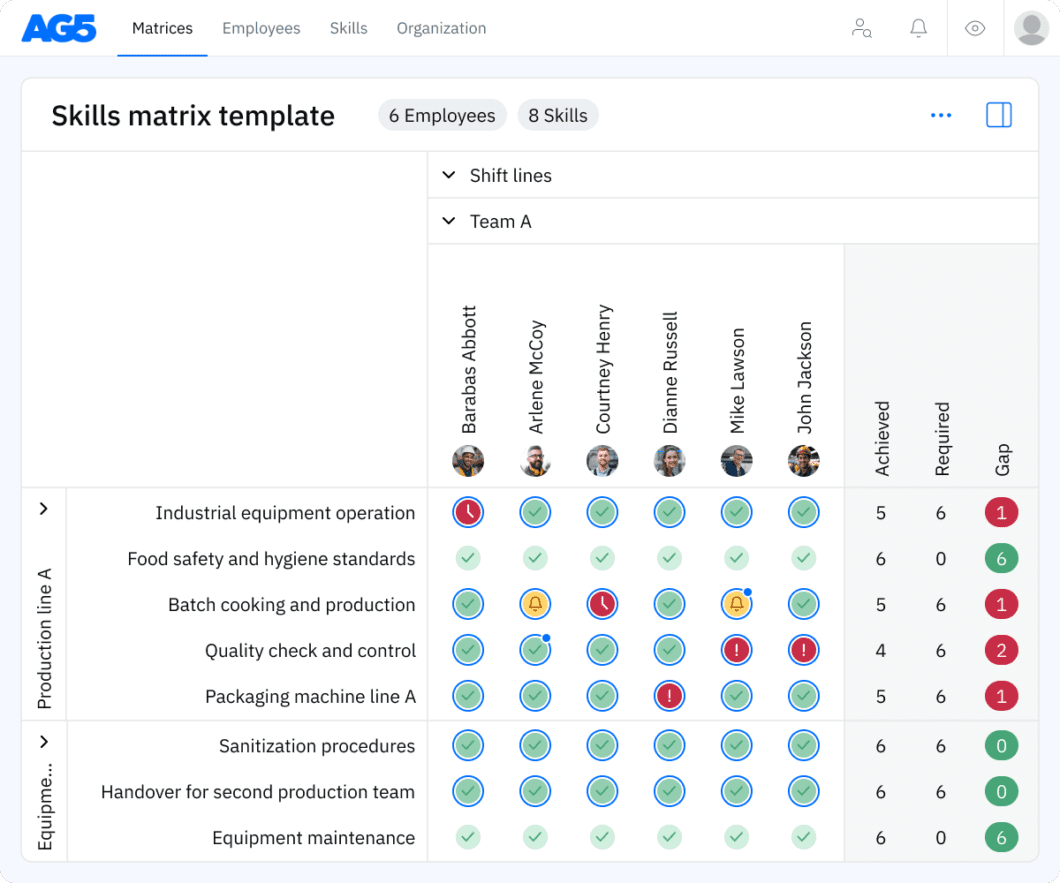HVAC industry skills matrix template
A skills matrix template is a tool that can be used in the HVAC industry to effectively manage and assess the skills and knowledge of individual employees or teams.
Download your free template here

Overview Copied
With our free HVAC industry skills matrix template, you will receive a clear overview of the skills that are present in your organization, as well as those that are missing. Using this information, you can develop and implement a plan to ensure that your employees’ skills are up to date, comprehensive, compliant, and ready for the future.
HVAC system installation
- Installing HVAC units and components based on technical drawings and specifications
- Conducting system layout and ductwork installation according to design plans
- Ensuring proper electrical connections for HVAC equipment
- Integrating HVAC systems with building automation controls
- Testing installed systems to ensure correct operation and performance
Preventive maintenance and troubleshooting
- Performing routine preventive maintenance on HVAC systems and components
- Diagnosing HVAC system malfunctions and identifying root causes
- Using diagnostic tools (e.g., multimeters, thermometers) to assess system performance
- Replacing worn or faulty parts in HVAC systems to prevent breakdowns
- Documenting maintenance activities and reporting on system health
HVAC system design and efficiency optimization
- Designing HVAC systems that meet energy efficiency standards and regulations
- Sizing HVAC equipment correctly based on load calculations and building specifications
- Implementing heat recovery and energy-saving strategies in system design
- Monitoring HVAC system performance to optimize energy use and reduce waste
- Conducting energy audits to identify opportunities for efficiency improvements
Safety and regulatory compliance
- Ensuring HVAC system installations comply with local building codes and safety standards
- Following safety protocols when handling refrigerants and other hazardous materials
- Adhering to OSHA regulations for HVAC system installation and maintenance work
- Ensuring proper ventilation and air quality management in HVAC systems
- Conducting safety audits and inspections to ensure system compliance with industry standards
Benefits Copied
Skills management software is important in the HVAC industry as it helps ensure that employees are trained and equipped with the necessary skills to install, repair, and maintain heating, ventilation, and air conditioning systems.
Download the free Excel HVAC industry skills matrix template Copied
We also have a free Excel template available that you can download if you are not ready to get started with AG5. To download it, please complete this form here.
Author Copied
Revisions Copied
Tired of managing skills in Excel?
Say goodbye to Excel matrices. Start using AG5’s plug and play skill matrix software.
Recognized by G2 for Excellence in Skills Management

